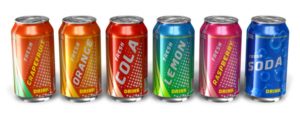 HYANNIS – Want to protect your heart? Put down the juice, step away from the energy drink and, for goodness sake, pour out that Frappuccino.
HYANNIS – Want to protect your heart? Put down the juice, step away from the energy drink and, for goodness sake, pour out that Frappuccino.
The latest review of research on sugar-sweetened drinks, published in the Journal of the Endocrine Society in November, suggests that not only do they increase your chances of developing diabetes and high blood pressure, but could lead to metabolic syndrome – a cluster of risk factors associated with multiple chronic conditions including cancer and cardiovascular disease. These risk factors include weight gain around your abdomen, high levels of the fats in the blood known as triglycerides, elevated blood pressure, high-fasting blood sugar and reduced levels of high-density lipoprotein (HDL), the good sort of cholesterol.
It’s not clear, the researchers say, exactly why drinks sweetened with added sugar increase the odds of metabolic syndrome. But they believe it might have to do with weight gain, particularly increased waist circumference.
These risk factors “all play into each other and then can lead to heart disease and diabetes,” said Julianna Coughlin, a registered dietician at the JML Care Center in Falmouth. “If you’re eating a ton of sugar, there are probably a lot of other lifestyle choices going on along with that, like lack of exercise, eating a lot of foods that are not the best for you, being obese or overweight.” If the body is carrying extra weight, the “heart has to work a lot harder to get its job done,” she said.
How widespread is the problem?
In 2011, the United Nations announced for the first time that noncommunicable diseases – e.g. heart disease and Type 2 diabetes – pose a greater health risk than infectious diseases in both developed and developing countries. The endocrine journal authors, who are from Stellenbosch University in South Africa, cite statistics that 74 percent of the thousands of foods on the American market contain added sugars and that sugary drinks provide 46 percent of those added sugars.
The U.S. Food and Drug Administration recommends that no more than 10 percent of your daily calories be from added sugars such as glucose, high-fructose corn syrup, honey, invert sugar, lactose, maltose, malt syrup, maple syrup, molasses, pancake syrup, raw sugar, sucrose, trehalose, or turbinado sugar. So, in a 2,000-calorie daily diet, only about 200 calories would come from added sugars. Even that would be about 50 grams (12.5 teaspoons) per day – a little less than in a can of Coke. Most Americans consume closer to 16 percent of their calories in sugar, the FDA says.
How much sugar could you be drinking?
As a comparison, consider that three Oreos have 160 calories and 14 grams (about 3 ½ teaspoons) of sugar, according to the label. Here’s how some sugary popular drinks stack up in comparison, according to nutrition information from the manufacturers:
- 16-ounce Starbucks Caramel Brulée Frappuccino® Blended Beverage: 65 grams
- 11.5-ounce bottle of Simply Lemonade: 40 grams
- 12-ounce can of Coca Cola: 39 grams
- 20-ounce Gatorade Lemon-Lime Thirst Quencher: 34 grams
- 5-ounce can of Red Bull: 27 grams
Humans crave sugar because our brains are programmed to detect the most efficient ways to obtain energy, said Coughlin. We start digesting carbohydrates while they are still in our mouths, unlike protein, which has to reach the stomach, and fats, which need to go all the way to the intestine to be fully processed.
“Carbohydrates are the most readily available food source for your body to break down and get to that [energy] goal,” she said. The concentrated sugar spikes your blood sugar level, making your body feel great – briefly.
Since your body processes carbohydrates faster, you’re hungry sooner than if you had eaten protein or fat, she says. The South African researchers also mentioned this, noting that the lack of satiety in a high-carbohydrate diet may cause people to eat more.
How can you control your sugar intake?
Coughlin recommends taking stock of how much sugar you’re consuming now and try to cut back from where you are.
“The people doing the most damage to themselves are the ones who are just not aware or are actively working against what they’ve been told,” she said.
Or they may be falling for hype. As she says, no one except a marathon runner or 6-foot, 200-pound guy who actually plays for the Florida Gators football team in 90-degree heat actually needs Gatorade.
Coughlin tries to save sugar for a special treat. If she’s suddenly craving carbs, she chews gum or drinks water and then waits a while to see if the feeling passes. If you’re thinking of cutting back on sugar, here are some other strategies she suggests:
- Figure out how much sugar you’re consuming daily now and then try eliminating something. For example, if you’re drinking a soda with lunch and dinner, and putting three spoonfuls of sugar in your coffee, eliminating even one soda would make a big difference.
- Switch to seltzer with a slice of lemon or orange or a splash of your favorite juice.
- Don’t buy things out of habit. Read the labels. For example, see if you can find a brand of juice that’s lower in sugar than the one you’re currently buying. Remember that ingredients are listed in descending order by weight — the closer they are to the beginning of the list, the more of that ingredient is in the food.
- Beware of “anything that comes in a wrapper.” Processed foods are more likely to have added sugars.
- It takes your body about 20 minutes to register if you’re full. Wait before ordering dessert.
























